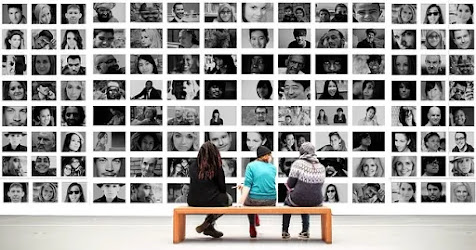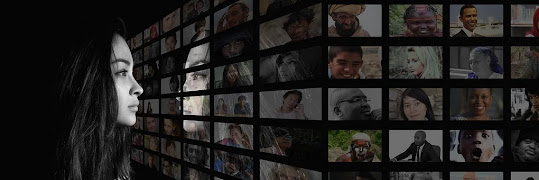How do you communicate?
Communication: The act or process of using words, sounds, signs, or behaviors to express or exchange information or to express your ideas, thoughts, feelings, etc., to someone else. formal : a message that is given to someone : a letter, telephone call, etc. : the ways of sending information to people by using technology. When communication occurs, it typically happens in one of three ways: verbal, nonverbal and visual. People very often take communication for granted. Communicators constantly exchange information, meaning people always seem to be either receiving or giving information.
Evolution of Communication and Onset of Social Media
Without a doubt there have been vast technological improvements which have transformed how information is gathered and transmitted both on a micro and macro scale. Social media, whether Twitter, Facebook, Linked-In, Instagram, Pinterest... and the list goes on, has revolutionized the way we communicate.
In the public sector social media certainly places a pivotal role in the way messages are delivered however the message must be accurate, clear and consistent organization-wide.
We live in a 24/7/365 society. The faster the better right? If you read it on the internet it must be true. Any information is better than no information or is it? Get the message out as quickly as possible particularly during an emergency-timing is everything. How many times have you read an on-line article with grammatical or factual errors? The use of social media must be carefully planned and implemented strategically organization-wide for the purpose(s) for which it is intended otherwise it will be counterproductive, ineffective, potentially detrimental and in extreme cases can induce public doubt, fear and mistrust.
Ways to communicate : (how do you communicate?)
- Facial expressions.
- Gestures.
- Pointing / Using hands.
- Writing.
- Drawing.
- Using equipment e.g. Text message or computer.
- Touch.
- Eye contact.
There are specific things to do that can improve your communication skills:
Get Your Point Across.
Listen to What People Are Not Saying.
Learn to Speak in Public to a Group.
Get Your Boss to Agree.
Give Negative Feedback Properly.
Manage Older Workers Effectively.
Improve Your Written Communication Too.
Write Better Emails.
Learn the basics of nonverbal communication.
One study found that nonverbal communication accounted for 55 percent of how an audience perceived a presenter. That means that the majority of what you say is communicated not through words, but through physical cues.
To communicate clearly and confidently, adopt proper posture. Avoid slouching, folding your arms or making yourself appear smaller than you are. Instead, fill up the space you are given, maintain eye contact and (if appropriate) move around the space.
You have to over-communicate just to communicate.
In 1990, a graduate student at Stanford University was able to prove that presenters overestimate how much listeners understand. In a study that become known as “the tappers and the listeners,” one set of participants was asked to tap the melody of 120 famous songs. The other participants were asked to guess what song was being tapped.
Tappers estimated that 50 percent of the songs tapped would be correctly identified. In reality, only 2.5 percent of songs were correctly identified. This study shows that it is important to communicate clearly, and to over-communicate when sharing new ideas. As this study indicates, it is likely that the audience will fail to absorb as much as you expect.
Try to Understand Other Point of View
Even when you do not agree with what the other person is saying, it is important to try to understand their point of view. It may be a tendency to think of “understanding” as “agreeing”, but these are two very different ideas. By understanding the other person’s point of view, you are simply moving toward resolution and effective communication. You cannot communicate your point of view without understanding where the other person is coming from. Imagine someone trying to communicate with you, when they do not understand your point of view.
Listen with empathy
Empathy is the ability to understand the feelings, thoughts, and beliefs of another person. Exactly this is the reason why organizations have started developing empathy in the workplace.
Emotional acceptance, closely related to empathy, means that, after empathizing and understanding how other person feels, we can accept the reasons why somebody feels or thinks the way they do, regardless of whether we agree with it or not.
Try to see things from others’ perspectives by accepting what you hear instead of trying to „fix things and solve the problem“.
Prepare what you're going to say
Think before you speak. Most of us work best when we have time to process our own thoughts before we share them.
If the conversation or meeting is worth your precious time, take a few minutes to prepare the speech draft.
For a very important conversation, try a mock-up conversation with a trusted person so you can get rid of any potential mistakes.
Letters to Newspapers
Expressing good wishes
Start and end with key points.
Think back to the “tappers and listeners” study mentioned earlier. Clear communication is of paramount importance. To ensure that the audience understands the key takeaways from a presentation, reiterate key points at the start and finish. This can also be accomplished by providing attendees with a one-pager that includes key points the audience should consider throughout the presentation.
Be ready for different answers
As you formulate a speech strategy, put yourself in the position of a person who will listen to you.
This will ensure balanced approach and you will be prepared to learn and defend potential disagreements and it will be easier for you to defend your standpoint.
No one can predict with certainty how other people will react.
Improve chances of a successful conversation by expecting negative answers and queries. So it is harder for your listeners to catch you unprepared.
Admit Your Responsibility
We all make mistakes. Sometimes we even hurt those we care about most. Allow yourself to recognize and acknowledge the less than admirable things that you do. If you hurt someone, even if you did not mean to, accept this and apologize. Once you have accepted the responsibility, the real communication can begin. It is important to remember that hurting someone, or making mistakes, does not make you a “bad” person, nor can you always have someone immediately stop feeling hurt just because you apologized.
George Seldes, in a 1942 publication of his weekly newsletter, In Fact, Inc. entitled: The Facts Are... : A Guide to Falsehood and Propaganda in the Press and Radio wrote about the power and corruption of the press primarily due to its close association with special interests. He stated: "What is the most powerful force in America Today? Answer: public opinion. What makes public opinion? Answer: the main force is the press." Does this still hold true today?
I would argue public opinion is just as or more important today than it was in 1942. Whether it's "the press," another media outlet or an internet troll our society is continuously being bombarded with information, messaging and editorials. Therefore, it's imperative, particularly in the public sector, these information transmittals are clear, timely, accurate and provide a consistent message.
Be a listener
Listen more than you talk.” This is what Richard Branson tells business people who want to connect with others. To communicate effectively, first listen to what others have to say. Then you can provide a thoughtful answer that shows you have taken those ideas into account.
In our nonstop 24/7/365 lives we need to remain cognizant of what is going on around us, on the internet, on our phones but most importantly with each other. Time doesn't stop nor does it slow down therefore we must!Conclusion
Communicating clearly is one of the most effective skills you can cultivate as a business leader. Remember to communicate using nonverbal and verbal cues. Listen carefully to what others have to say, and over-communicate in novel ways to ensure the content of the conversation sticks with the audience.




No comments:
Post a Comment